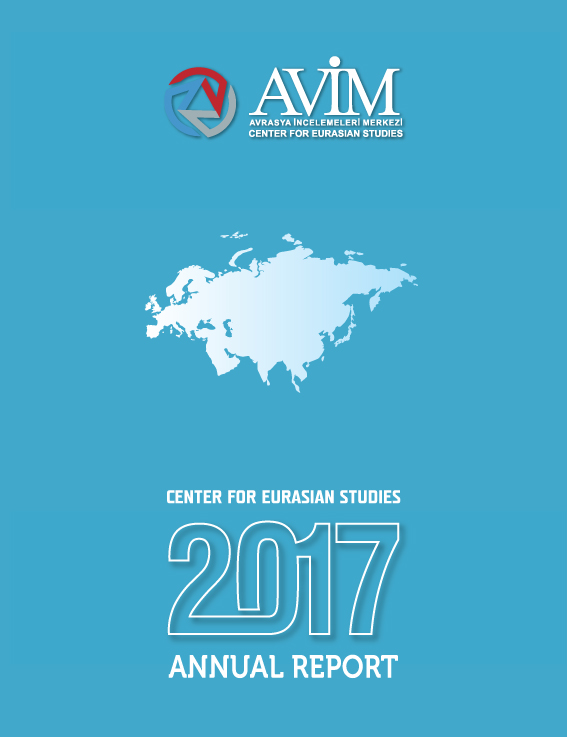AVİM 2017 Annual Report
| Author | : | |
|---|---|---|
| Date | : | 2017 |
| Language | : | English |
Download PDF
FORWARD
Having left behind a full and intense year of work in AVİM’s sphere of interest, we are pleased to present the Yearly Report in which we provide a general hindsight regarding the year 2017’s developments and activities.
Our focus on Eurasia, particularly on Caucasia and the Balkan geography, the wider Black Sea Region, the Caspian basin and Central Asia, which form the major areas of interest of our center, have continued with expanded and deepening activities.
Our close ties with Georgia and Azerbaijan in the South Caucasus have been reflected in our work. The Armenian controversy stemming from the distortion of historical facts and exploited for political calculations is naturally included within our priorities as it creates obstacles to the desired good neighborly relations, to peace, stability and cooperation in the Caucasus. The loss of credibility of the Armenian allegations and claims in the judicial arena is no doubt a source of hope for the future. Nevertheless, the continued search to formulate a new agenda and discourse voiced by the Armenian authorities at the highest level is an indication that the struggle will continue.
We have also followed the developments in the Balkan geography closely. We have persistently cautioned against the attempts to cast Turkey, an essential component of the Balkans and inseparable part of it, outside the Balkans, with particular concern to the coining of an artificial separation and division in the Balkans.
In addition to the regular publications of our center, the daily bulletin in two languages, Ermeni Araştırmaları [Eng. Armenian Studies] journal published three times a year, the Review of Armenian Studies journal published twice a year, the annual Uluslararası Suçlar ve Tarih [Eng. International Crimes and History] journal, this autumn the first issue of our biannual Avrasya Dünyası [Eng. Eurasian World] journal, has appeared.
In a period when global balances are in transition, Turkey has qualified from being the West’s eastern most post to also being the East’s western most, moving to the center of the Eurasian geography. With this in mind, AVİM acknowledges the need to develop a new geopolitical and geo-economical perspective with regard to the relations of Turkey as a country at the crossroads of Europe and Asia.
This assessment, on one hand, necessitates the need to progressively sustain traditional relations with the West to the greatest extent possible, on the other it necessitates the need to closely observe and support the developments occurring in Asia and extending to the West. These developments are of a nature to provide opportunities for closer relations with the Central Asian Republics with which Turkey enjoys traditional bonds of historical ties, common language, religion and culture.
AVİM, a nonprofit, neutral and independent think tank, assumes responsibility and has the determination to continue its work with devotion. We extend our gratitude to all individuals and institutions that support our work and publications. I wish to express my gratitude particularly to AVİM’s staff, whose devotion and untiring efforts we owe the rising level and quality of our work.
Alev KILIÇ


